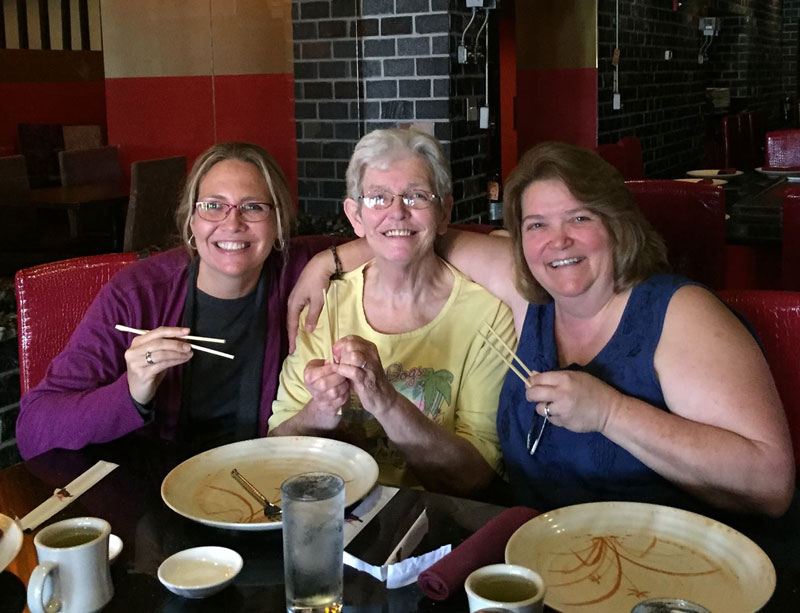Know Your Audience: Talking to Others About a Mesothelioma Diagnosis

I live in a small town in Maine. I’ve come to find there’s two kinds of people here: Those who mind their own business and those who want to know every detail.
We call the latter buttinskies.
After I was diagnosed with pleural mesothelioma, I knew the questions were coming. News travels fast in a small town, especially when someone is battling a rare cancer and undergoing life-saving surgery 100 miles away in Boston during the holiday season.
I’m a pretty private person, so the way I dealt with the onslaught of questions after my diagnosis was to come up with standard answers.
I want people to be educated and know the facts, but I don’t want to reveal every detail because I know the buttinskies are going to go out and twist it, turn it and misquote me.
My family knew, and I found most of my friends and acquaintances went to them with the detailed questions. I think that’s pretty common with other survivors.
People will be less direct with you. They’ll ask, “How are you?” You want to tell them, “Well, I just went through a 6 1/2-hour surgery, so I’ve been better.”
Most of the time, people ask questions to be polite. There are those who genuinely care about you and want to be reassured that you’re going to be OK.
The last thing they want to hear is that you may die.
I’ve found the key to answering the array of questions you’ll hear is to come up with answers that are complete but broad.
Deal with It from One Scan to the Next
When someone asked me how I was doing, I would tell them what the doctors told me.
I would say they have hope the surgery and treatments have been successful. I would tell them time will tell until I see my fortune teller next.
Every three months, I would head back to Boston to see my doctors and get a scan. Depending on the results, that was how I was doing.
After my surgery and treatments — once the cancer was in remission — I was OK until my next scan. My fortune was told by whoever read the next scan, and whatever they told me, I dealt with.
You don’t necessarily deal with it one day at a time, but rather one appointment to the next.
Essentially, that’s what the majority of questions from friends and family are about. They don’t want to know if you’re OK; they want to know if you’re going to live or die.
That’s the big question on their mind, even though they won’t come out and say it.
What They See vs. What You Know
I recently celebrated six years of survival. It’s been so long since my surgery — and so long since I’ve had major complications or problems — that many people don’t think I have cancer anymore.
I don’t appear ill. I don’t show noticeable mesothelioma symptoms. Only my family and those who are closest to me really know the truth.
The thing many people don’t realize is the treatments make you look ill, not the cancer itself. When I was undergoing chemotherapy, I certainly looked and felt like less than a million bucks.
Once the chemo stopped, I looked and felt healthy again.
As the patient, you always know the cancer is there and that it can return any minute. There are times you just want to shake people because you see them doing stupid things like wasting their lives.
I have no tolerance for someone who wants to waste the time they have. My diagnosis has allowed me to appreciate life more and has given me a new outlook on how we celebrate each day.
Tailor Your Answers to the Person Asking Questions
Rather than get caught off guard, think through who’s asking you questions about your illness.
Think about what they’re looking for in an answer and have some packaged responses ready. You’ll have some people who you’ll sit down with, cry on their shoulder and spiel your whole story.
For others, it’s best to leave it at cliché responses.
“I’m taking it one day at a time, and so far, they’re all good ones.” “Every day above ground is a great one.” “I’m on the right side of the grass.”
It’s like when someone asks you how your weekend was. Some may want a detailed explanation of what you did, but many just want a simple, “It was good.”
You also have to do what’s best for you. If a friend or an acquaintance is offering help or advice that you don’t want, don’t be afraid to say no thanks.
Patients need to have information to make knowledgeable decisions that’re right for them. That’s the key.
You need to be respectful and appreciative when answering questions or declining help, but at the end of the day they’re your decisions and others have to respect those decisions.
The most important thing is knowing your audience — distinguishing those who genuinely care from the buttinskies.